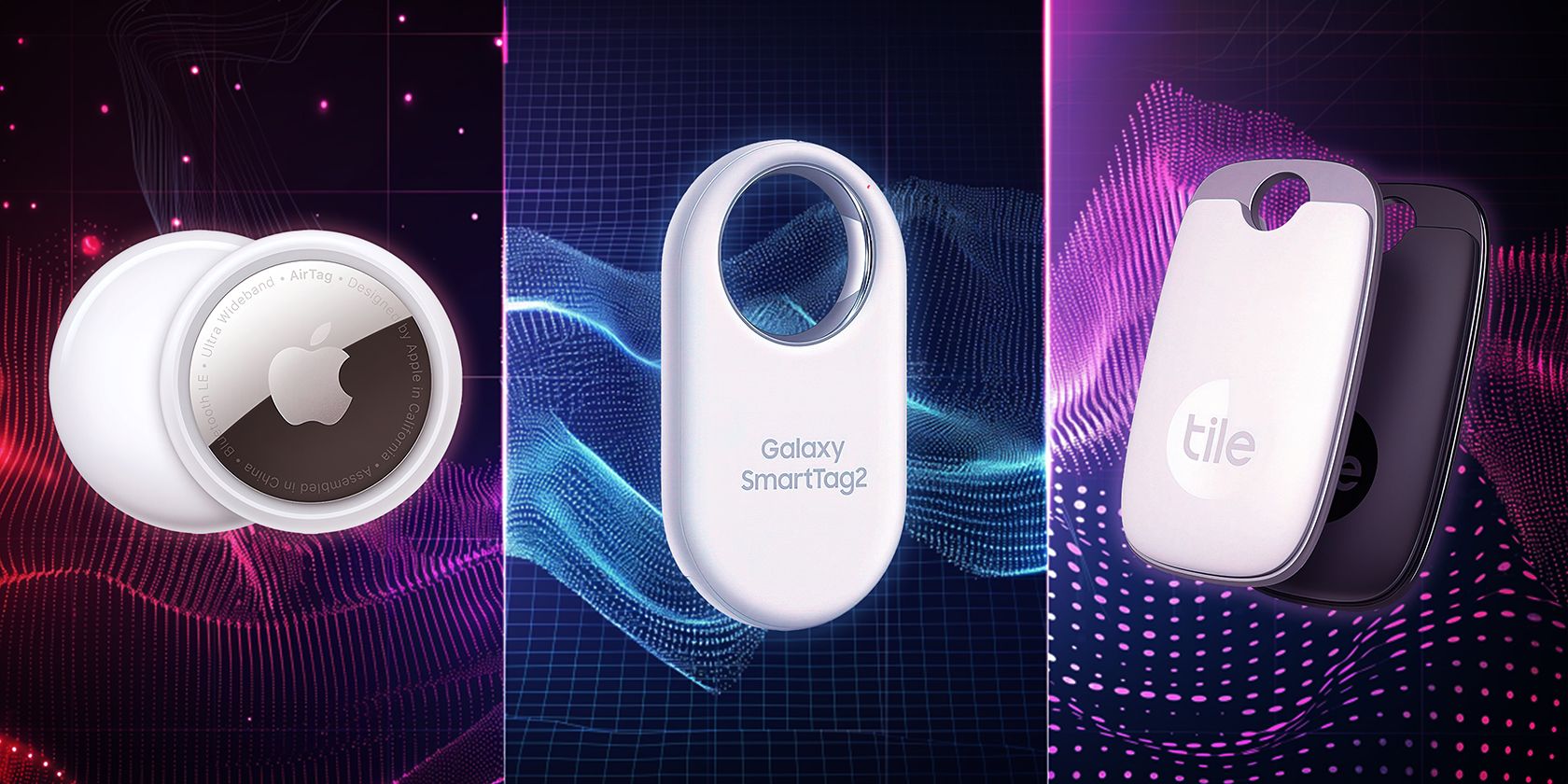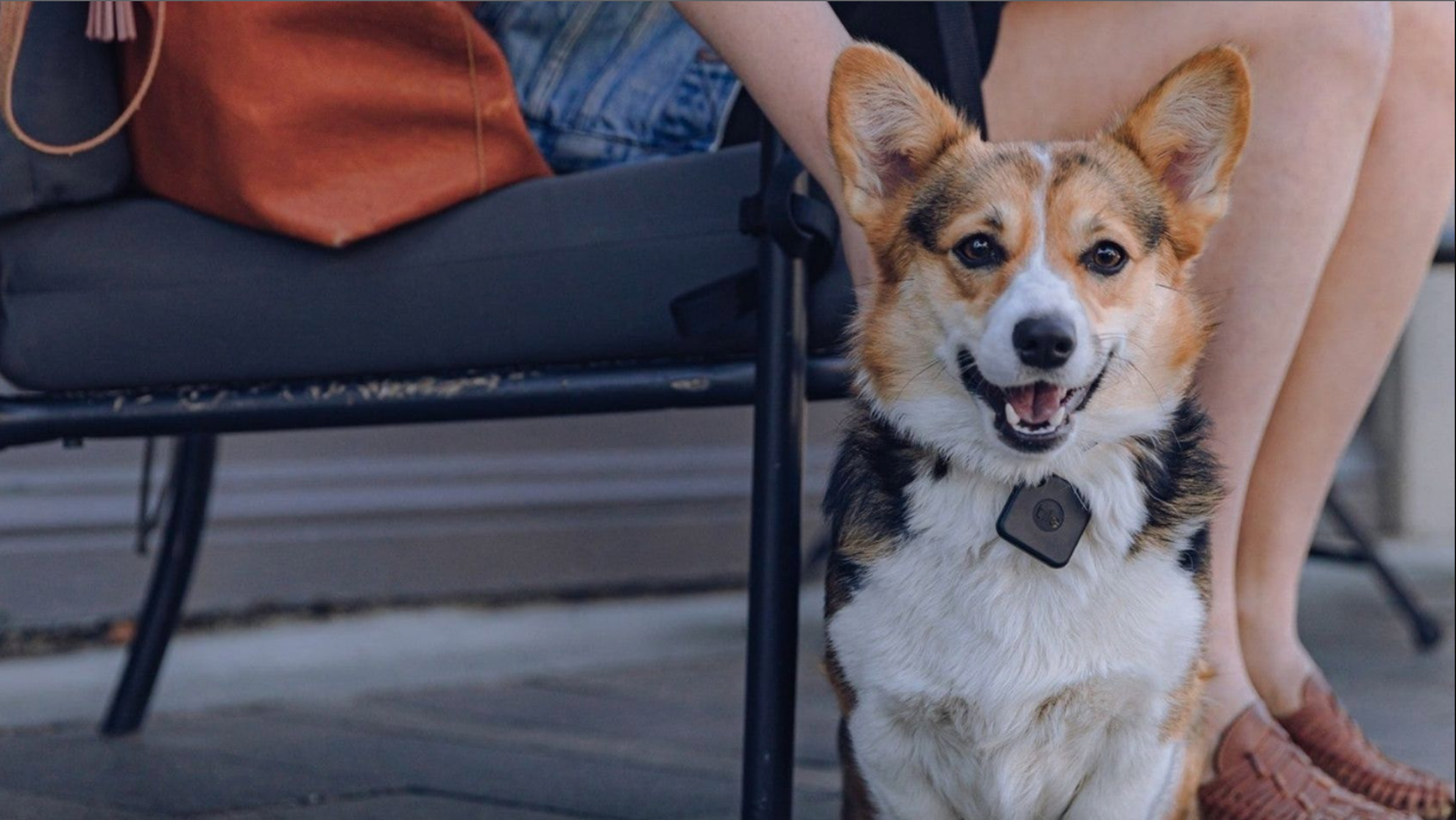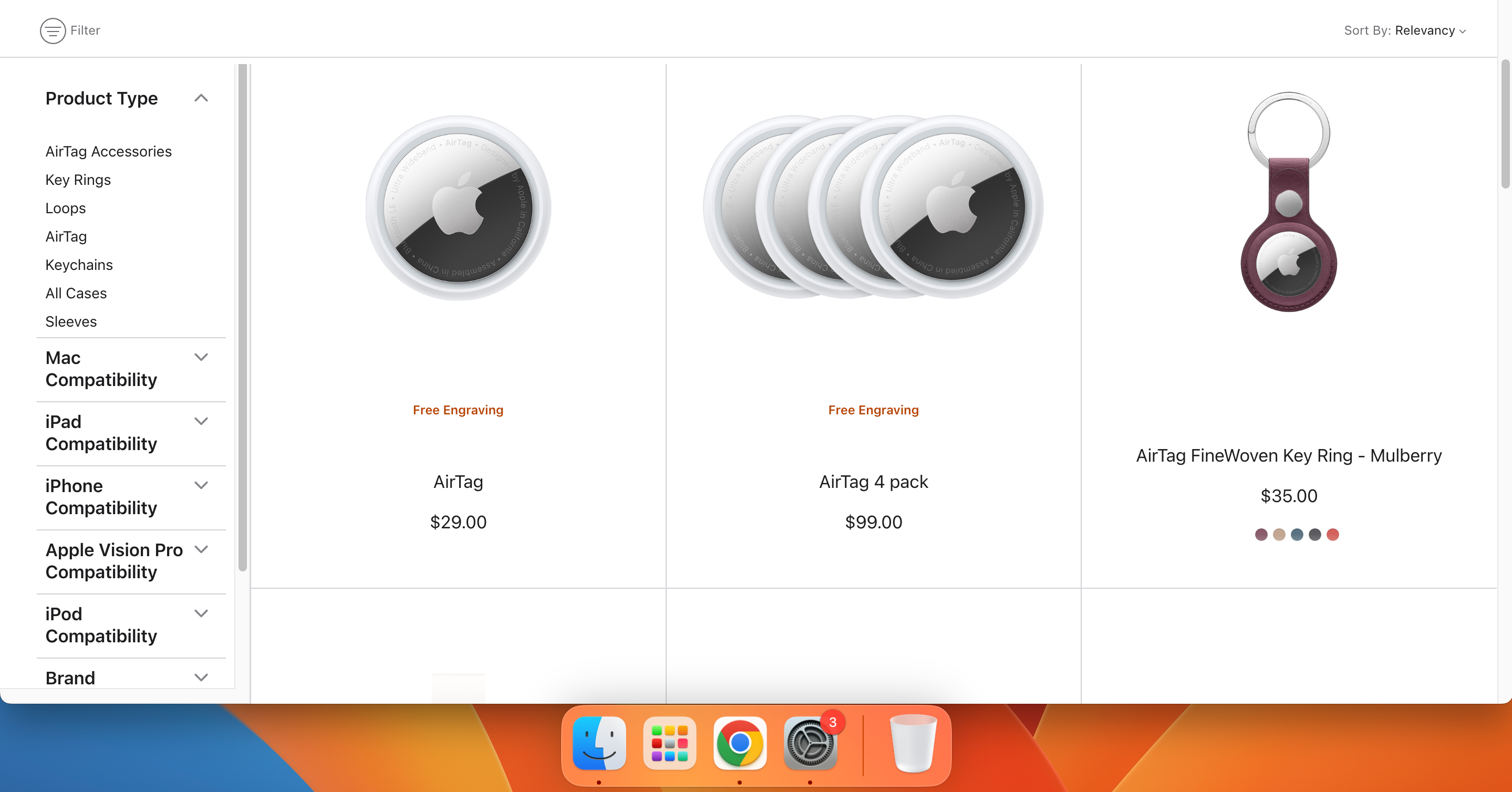Quick Links
Key Takeaways
- Tile trackers are the best all-around choice since they’re platform-agnostic and come in various form factors.
- AirTags are best for those within the Apple ecosystem. Thanks to the vast Find My network, your chances of finding lost items are higher.
- Samsung SmartTags are ideal for those with Galaxy devices. The SmartTag 2’s built-in key loop lets you attach it to items without additional accessories.
Bluetooth trackers are a great way to ensure you don’t lose or misplace your belongings. But between Apple AirTags, Samsung SmartTags, and Tile trackers, which option deserves your hard-earned money? Let’s find out.
Design and Durability
Apple’s AirTag sports the most straightforward design, with a coin-like footprint small enough to slip into bags, purses, or backpacks. However, you need to purchase separate AirTag accessories to pop them on a carabiner or key clip. They’re also a bit too large to fit into a standard wallet.
AirTags also feature a user-replaceable coin cell battery with an estimated life of up to one year. They’re IP67-rated, which means that they’re dust- and water-resistant.
Samsung’s newest SmartTag, the Galaxy SmartTag 2, features a loop, which means that you don’t need to purchase anything else to attach them to your keys. Like AirTags, they aren’t thin enough for a slim wallet. The SmartTag 2 also has an IP67 water-resistance rating.
When it comes to Tile trackers, you have a lot more options. Tile’s tracker lineup ranges from the Tile Sticker, which features an adhesive side for sticking to various items, to the Tile Slim, which is thin enough to slip into a card wallet.
Because Tile’s range is so diverse, finding one that fits your needs is relatively easy. All Tile trackers feature IP67 water resistance. When it comes to battery life, only the Tile Pro features a replaceable battery with a one-year lifespan. The Tile Mat, Slim, and Sticker have non-replaceable batteries with up to a three-year lifespan.
All these trackers are generally lightweight and durable enough for most daily tracking needs. However, since Tile trackers come in all shapes and sizes, which gives buyers more choices, they win in terms of overall design.
Winner: Tile
App and Device Features
All three trackers feature similar capabilities in their respective apps. In general, you’ll be able to locate your tracker—and the item it’s attached to—in a map view. They all also feature a ping option, which lets you trigger an audible sound on the devices.
Apple’s AirTags have a few nifty features. Thanks to Ultra Wideband support, you can use Precision Finding on compatible iPhones to locate an AirTag more precisely. The Find My network also leverages nearby Apple devices for accurate location tracking. Because the network is so vast, the chances of finding a misplaced item are higher than on other devices.
SmartTags have access to Samsung’s SmartThings Find network, which uses nearby Galaxy devices to pinpoint their location. However, Samsung’s network is opt-in only, meaning it might be smaller than the on-by-default Find My network. Like AirTags, SmartTags+ and SmartTags 2 support UWB technology for quick and accurate finding.
The Tile tracker also features similar finding capabilities, but the network relies on Tile app users or those who have opted-in to third-party platforms like Amazon Sidewalk. Although Tile trackers don’t have Ultra Wideband support, they don’t have a neat reverse-tracking feature that lets you ping your smartphone by pressing a button on the tracker itself.
As for Bluetooth range, both Tile and SmartTag beat Apple’s AirTag. For reference, AirTags have a Bluetooth range of about 30 feet, while Tile and SmartTag have ranges between 250 and 400 feet.
Winner: AirTag
Platform Compatibility
The biggest difference between these three devices is platform compatibility. For those thoroughly embedded in either the Apple or Samsung ecosystem, there will be a “right answer.”
For example, you need an iPhone running on iOS 14.5 or later—or another Apple device—to even use an AirTag in the first place. The same goes for the Galaxy SmartTag 2, which is best used with a Samsung device running Android 11 or later.
Tile trackers, on the other hand, are platform-agnostic. They offer similar functionality on both iOS and Android devices. Because of that, Tile trackers are probably the best choice for those who switch between operating systems or have a smartphone other than an iPhone or a Samsung Galaxy.
Winner: Tile
Pet Tracking
Apple recommends against using an AirTag to track your pet’s whereabouts. Although AirTags are technically tiny and light enough to fit on a pet’s collar, the short Bluetooth range makes them less useful in rural settings. AirTags also lack GPS tracking, which dedicated pet trackers have.
The same goes for Samsung’s SmartTags, which relies on nearby Samsung users for location services. It’s worth noting that Samsung’s SmartThings Find network is smaller than Apple’s Find My network, so your location data may not be as precise.
Tile trackers specifically advertise their devices as suitable for pets, but they also have the similar downside of not having dedicated GPS location services onboard.
All three tracking devices in this comparison can theoretically track pets, but none are technically dedicated pet trackers. They’ll work in a pinch, but consider a dedicated pet tracker if you want the best for your furry companions.
Winner: Tile
Safety and Privacy
Although Bluetooth trackers are great for keeping tabs on your belongings, people can also use them for nefarious purposes like stalking. However, each company has taken steps to mitigate these threats.
Apple has received the most negative press about tracker stalking. As such, the company has taken the most drastic measures to strengthen safety features. AirTags have several privacy-focused features, including an option that alerts users if an unknown AirTag has been traveling with them.
Apple’s AirTag also automatically plays a sound when it’s moved after being separated from its owner for a period of time. Samsung’s SmartTags have similar features, though its unknown SmartTag detection features need to be enabled in the Settings app. Apple’s feature is on by default.
Tile’s app lets users scan for unknown Tile trackers around them. However, unlike AirTags and SmartTags, Tile trackers don’t automatically play a sound when separated from their owners.
Winner: AirTag
Price Comparison
AirTags come in a single variant that retails for $29. Apple charges $99 for a four-pack, but you can find it at a discount on Amazon. Other accessories, such as a key ring to attach to your keys or a bag, cost extra.
The Galaxy SmartTag 2 also retails for $29.99 ($99.99 for a four-pack), but you can get it for much lower on Amazon. Since the device has a dedicated key loop, you won’t need a separate accessory to attach it to things.
Tile’s range is wider, and so is the pricing. The standard Tile Mate with a key loop costs $24.99, while the adhesive Tile Sticker costs $29.99. The Tile Slim, which fits in a wallet, is $34.99.
Winner: Tile
Which Tracker Is Right for You?
Tile is the best well-rounded choice. It’s platform-agnostic, meaning it’s great for both Apple and Android users. Tile also makes different trackers for different use cases. For example, if you want to stick a tracker in your wallet, the Tile Slim is tailor-made for that.
AirTags are perfect for those within the Apple ecosystem. The massive Find My network also means that your chances of locating misplaced property are higher than with the other two options.
Samsung users, however, won’t be able to use AirTags. For them, the Galaxy SmartTags are the best option. Although Samsung’s SmartThings Find network is smaller, it’s still robust enough to locate your missing or misplaced items.
All three, however, serve basically the same function in a fairly similar way. So, the right tracker for your needs really boils down to how you plan to use them and what devices you own.

Jessica Irvine is a tech enthusiast specializing in gadgets. From smart home devices to cutting-edge electronics, Jessica explores the world of consumer tech, offering readers comprehensive reviews, hands-on experiences, and expert insights into the coolest and most innovative gadgets on the market.




